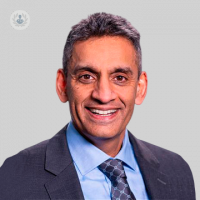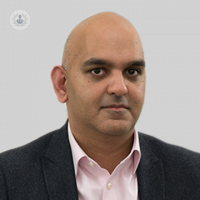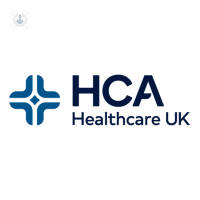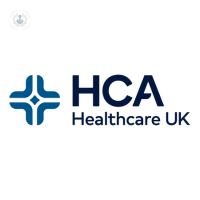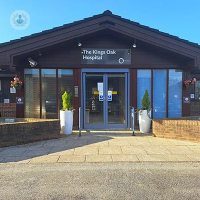What are palpitations?
Palpitations are heartbeats that become noticeable all of a sudden, either during activity or rest. People who experience palpitations may be alarmed but most of the time, they're completely safe.

What do palpitations feel like?
Palpitations are heartbeats that feel either too fast or too hard and sometimes they can feel like your heart is skipping a beat. These are felt in your chest, throat, or neck. The sensation can last for seconds or minutes.
What causes palpitations?
Palpitations can result from anxiety, stress, or panic attacks; caffeine intake or nicotine; consumption of illegal drugs; exercise, and fever.
Pregnancy and menopause can also cause heart palpitations.
Medication, including asthma inhalers, antihistamines, antibiotics, and antidepressants, can also cause them. Seek advice from your GP if you are experiencing palpitations caused by medication.
Heavy meals, particularly those rich in fat, sodium, and/or sugar, can cause palpitations. Palpitations can be a sign of food sensitivity if they always happen after eating a certain type of food.
Sometimes, heart palpitations can indicate more serious heart conditions, particularly if they happen frequently.
What conditions are palpitations a symptom of?
Palpitations can be a sign of a serious health condition, for example:
- Arrhythmias;
- Coronary artery disease;
- Heart failure;
- Heart valve problems;
- Heart muscle problems;
Other medical conditions like thyroid disease, anaemia, or low blood pressure can also result in palpitations.
Are palpitations serious?
Often palpitations are harmless, but if they occur frequently, a medical examination will be needed to rule out underlying heart problems, such as arrhythmia.
If you have a history of heart issues and are experiencing palpitations, you should book a consultation with your GP.
Only if palpitations are experienced in conjunction with breathlessness, dizziness, chest pains and fainting are they considered to require immediate medical attention.
Can palpitations be prevented?
It is possible to prevent palpitations by doing the following:
- Regular, moderate exercise
- Avoid anxiety and stress
- Treat underlying diseases
- Avoid tobacco, alcohol and coffee
How are palpitations diagnosed?
Doctors will start by taking a detailed medical history, for this reason, it is important to keep track of your palpitations. Doctors will then establish if there is a family history of heart issues, and perform a physical exam. To rule out possible underlying heart conditions, you may need to undergo further tests like an ECG, a blood pressure test, a stress test, a chest x-ray, or an echocardiogram.

How are palpitations treated?
Treatment will depend on the underlying cause of the palpitations. If it is caused by anxiety or stress, then these can be managed better. If they are caused by a stimulant, then these can be avoided. If there is an underlying heart condition, then this will have to be treated accordingly.
What specialist treats heart palpitations?
Cardiologists would diagnose and treat heart palpitations.
11-13-2012 04-25-2023Palpitations
Dr Alessandro Giardini - Paediatric cardiology
Created on: 11-13-2012
Updated on: 04-25-2023
Edited by: Lauren Dempsey
What are palpitations?
Palpitations are heartbeats that become noticeable all of a sudden, either during activity or rest. People who experience palpitations may be alarmed but most of the time, they're completely safe.

What do palpitations feel like?
Palpitations are heartbeats that feel either too fast or too hard and sometimes they can feel like your heart is skipping a beat. These are felt in your chest, throat, or neck. The sensation can last for seconds or minutes.
What causes palpitations?
Palpitations can result from anxiety, stress, or panic attacks; caffeine intake or nicotine; consumption of illegal drugs; exercise, and fever.
Pregnancy and menopause can also cause heart palpitations.
Medication, including asthma inhalers, antihistamines, antibiotics, and antidepressants, can also cause them. Seek advice from your GP if you are experiencing palpitations caused by medication.
Heavy meals, particularly those rich in fat, sodium, and/or sugar, can cause palpitations. Palpitations can be a sign of food sensitivity if they always happen after eating a certain type of food.
Sometimes, heart palpitations can indicate more serious heart conditions, particularly if they happen frequently.
What conditions are palpitations a symptom of?
Palpitations can be a sign of a serious health condition, for example:
- Arrhythmias;
- Coronary artery disease;
- Heart failure;
- Heart valve problems;
- Heart muscle problems;
Other medical conditions like thyroid disease, anaemia, or low blood pressure can also result in palpitations.
Are palpitations serious?
Often palpitations are harmless, but if they occur frequently, a medical examination will be needed to rule out underlying heart problems, such as arrhythmia.
If you have a history of heart issues and are experiencing palpitations, you should book a consultation with your GP.
Only if palpitations are experienced in conjunction with breathlessness, dizziness, chest pains and fainting are they considered to require immediate medical attention.
Can palpitations be prevented?
It is possible to prevent palpitations by doing the following:
- Regular, moderate exercise
- Avoid anxiety and stress
- Treat underlying diseases
- Avoid tobacco, alcohol and coffee
How are palpitations diagnosed?
Doctors will start by taking a detailed medical history, for this reason, it is important to keep track of your palpitations. Doctors will then establish if there is a family history of heart issues, and perform a physical exam. To rule out possible underlying heart conditions, you may need to undergo further tests like an ECG, a blood pressure test, a stress test, a chest x-ray, or an echocardiogram.

How are palpitations treated?
Treatment will depend on the underlying cause of the palpitations. If it is caused by anxiety or stress, then these can be managed better. If they are caused by a stimulant, then these can be avoided. If there is an underlying heart condition, then this will have to be treated accordingly.
What specialist treats heart palpitations?
Cardiologists would diagnose and treat heart palpitations.


My child is having heart palpitations: should I be worried?
By Dr Alessandro Giardini
2025-01-28
Just as in some adults, children can have heart palpitations too, where the heart feels like it is beating too hard or too fast, or like it has skipped a beat or even is fluttering. Palpitations may sometimes happen in young children but they are more likely to occur in older children and adolescents. We asked one of our leading London Paediatric Cardiologists, Dr Alessandro Giardini on how to recognise if your child is having heart palpitations and when to take your child to the doctor. See more


Atrial fibrillation: Triggers, symptoms and treatment
By Dr Senthil Kirubakaran
2025-01-28
Atrial fibrillation can cause symptoms like palpitations, breathlessness, and fatigue, and may also lead to more serious complications. Revered consultant cardiologist and electrophysiologist Dr Senthil Kirubakaran tells us more in this informative article. See more
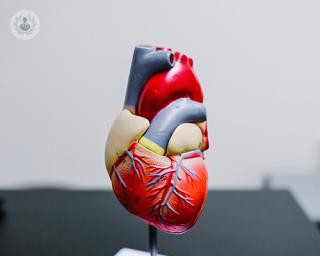

Palpitations: Understanding the heart's unexpected beat
By Dr Gosia Wamil
2025-01-28
Palpitations are a common yet often unsettling experience, characterised by the sensation of an irregular or forceful heartbeat. While they are frequently harmless, they can sometimes indicate underlying medical issues that require attention. Here, Dr Gosia Wamil, internationally-recognised consultant cardiologist, explores the causes, symptoms, diagnosis, and management of palpitations to help demystify this phenomenon. See more


When should I worry about heart palpitations?
By Dr Waqas Khan
2025-01-28
Heart palpitations are sensations of an irregular, rapid, or fluttering heartbeat. Most of the time, they’re harmless and occur due to factors like stress, caffeine or dehydration - which as long as they aren’t chronic, can be easily addressed. However, in some cases, they may indicate an underlying heart condition or other health issues that require medical attention. It’s essential for your well-being to be aware of when to seek help. See more
Experts in Palpitations
-
Dr Michael John Van der Watt
CardiologyExpert in:
- Heart murmur
- Angina
- Syncope
- Palpitations
- Heart failure
- Pacemaker
-
Dr Rajan Sharma
CardiologyExpert in:
- Echocardiogram
- Coronary heart disease
- Valvular heart disease
- Heart failure
- Hypertension (high blood pressure)
- Palpitations
-
Dr Sayan Sen
CardiologyExpert in:
- Chest pain
- Pacemaker
- TAVI (transcatheter aortic valve implantation)
- Coronary angioplasty
- Palpitations
- Hypertension (high blood pressure)
-
Dr Andrew Deaner
CardiologyExpert in:
- Cardiovascular disease
- Coronary angioplasty
- Echocardiogram
- Pacemaker
- Palpitations
- Heart failure
-
Dr Syed Ahsan
CardiologyExpert in:
- Arrhythmia
- Cardiac (catheter) ablation
- Atrial Fibrillation
- Chest pain
- Pacemaker
- Palpitations
- See all

The Harborne Hospital - part of HCA Healthcare
The Harborne Hospital - part of HCA Healthcare
Mindelsohn Way, B15 2FQ
No existe teléfono en el centro.
By using the telephone number provided by TOP DOCTORS, you automatically agree to let us use your phone number for statistical and commercial purposes. For further information, read our Privacy Policy
Top Doctors

Chiswick Medical Centre (HCA)
Chiswick Medical Centre (HCA)
347 - 353 Chiswick High Road
No existe teléfono en el centro.
By using the telephone number provided by TOP DOCTORS, you automatically agree to let us use your phone number for statistical and commercial purposes. For further information, read our Privacy Policy
Top Doctors

Kings Oak Hospital - part of Circle Health Group
Kings Oak Hospital - part of Circle Health Group
127 The Ridgeway, Enfield EN2 8JL
No existe teléfono en el centro.
By using the telephone number provided by TOP DOCTORS, you automatically agree to let us use your phone number for statistical and commercial purposes. For further information, read our Privacy Policy
Top Doctors
-
The Harborne Hospital - part of HCA Healthcare
Mindelsohn Way, B15 2FQ, BirminghamExpert in:
- Digestive
- Cancer
- Orthopaedic surgery
- Thoracic Surgery
- Diagnostic Imaging
- Obstetrics and Gynaecology
-
Chiswick Medical Centre (HCA)
347 - 353 Chiswick High Road, West LondonExpert in:
- Dermatology
- Diagnostic Imaging
- Obstetrics and Gynaecology
- Sports Medicine
- General practice
-
Kings Oak Hospital - part of Circle Health Group
127 The Ridgeway, Enfield EN2 8JL, North LondonExpert in:
- Cancer
- Cardiology
- General Surgery
- Orthopaedic surgery
- Diagnostic Imaging
- Obstetrics and Gynaecology
- See all
- Most viewed diseases, medical tests, and treatments
- Respiratory infection
- Osteoporosis
- Narcolepsy
- Snoring
- Polysomnography (sleep study)
- Alzheimer's disease
- Chronic headache
- Electrophysiology study
- Autoimmune diseases
- Joint pain


